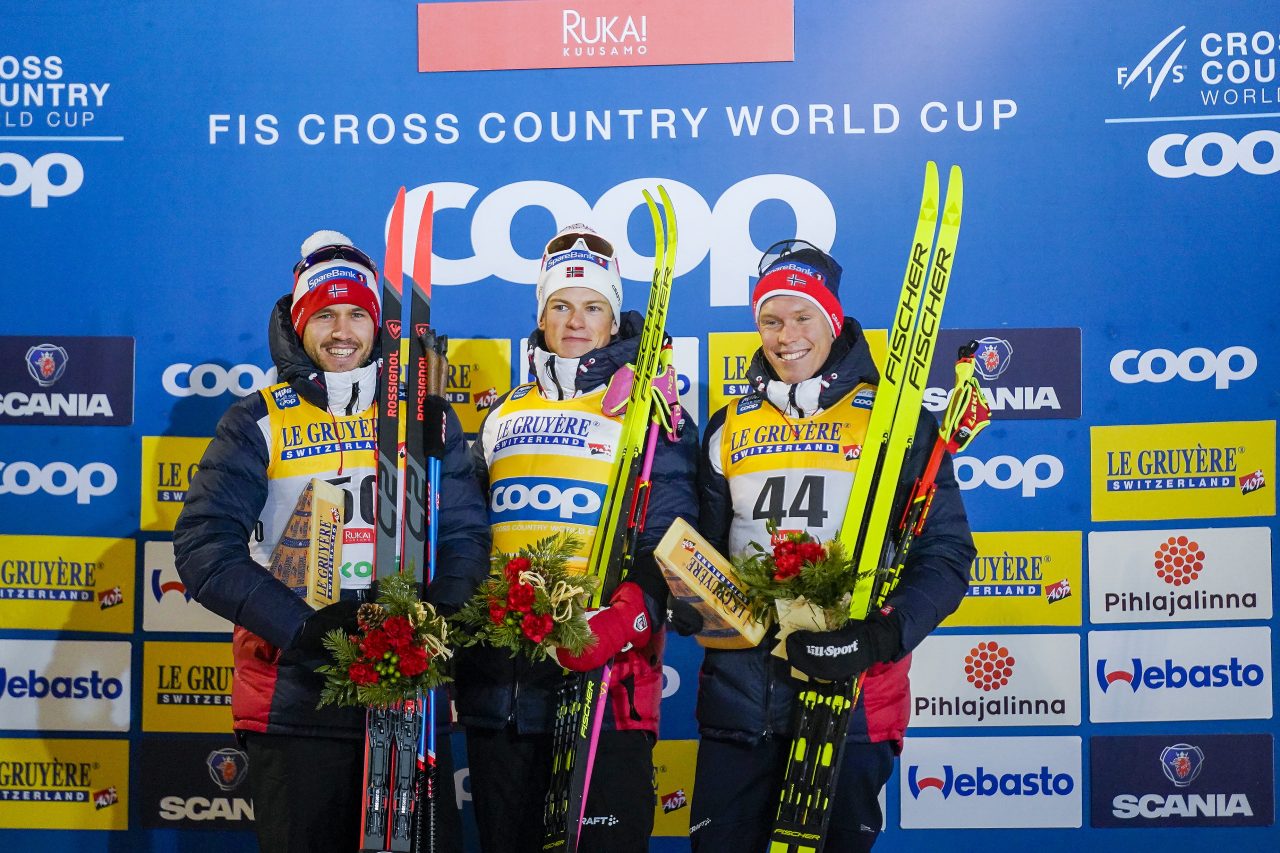 This World Cup coverage is made possible through the generous support of Marty and Kathy Hall and A Hall Mark of Excellence Award. To learn more about A Hall Mark of Excellence Award or to learn how you can support FasterSkier’s coverage please contact info@fasterskier.com.
This World Cup coverage is made possible through the generous support of Marty and Kathy Hall and A Hall Mark of Excellence Award. To learn more about A Hall Mark of Excellence Award or to learn how you can support FasterSkier’s coverage please contact info@fasterskier.com.
Ruka Men’s 10K Classic Individual Start
Ruka presented less challenging conditions this year compared to last year for the athletes. Temperatures were in the high teens (-8.0 Centigrade) with racers running on green cold waxes. Humidity was 100 percent, which posed the possibility of tracks glazing during the race. The racers competed on a 5-kilometer course with 30 seconds between the start of each racer.
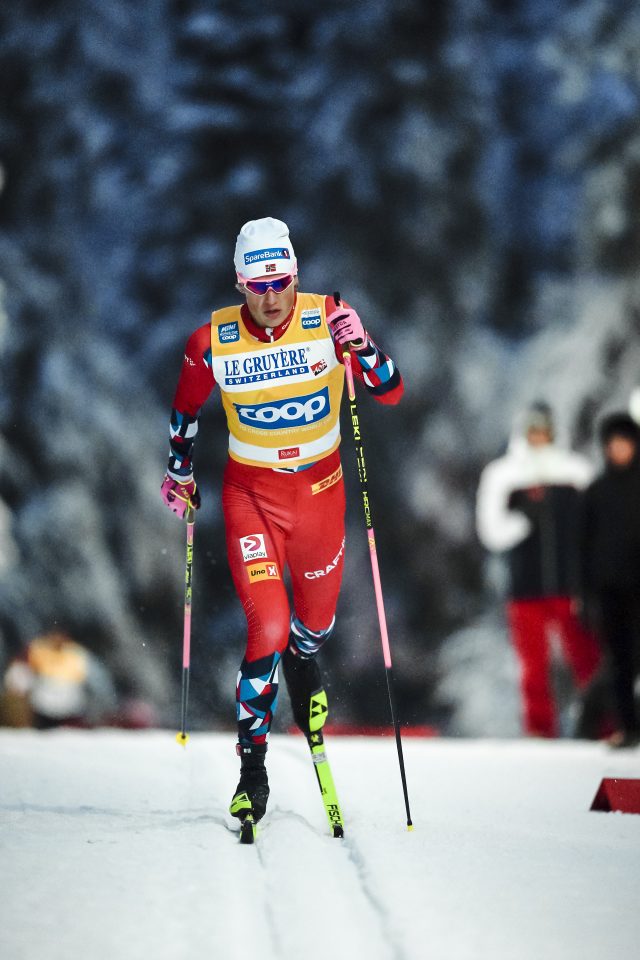
Results:
The Norwegians dominated the field. Johannes Klæbo finished first, besting countrymen Paal Golberg by 20.5 seconds followed by Martin Nyenget who was 28 seconds behind Klæbo. An outstanding performance was turned in by Andrew Musgrave of Great Britain, who finished in fifth, 40.3 seconds behind Klæbo. Norweigans took six of the top ten spots.
The top American was Ben Ogden, finishing 28th, 1:23.9 back. He was closely followed by Zak Ketterson who finished 31st, 1:24.6 out of first. Rounding out the field for the Americans was Hunter Wonders, who is also a competitive canoe racer, finishing in 39th. 2020 Junior World Champion in the 10 kilometer, Gus Schumacher, finished 48th. Scott Patterson finished 54th.
The top Canadian was Graham Ritchie, finishing 35th. He was followed by Olivier Leveile who finished 44th.
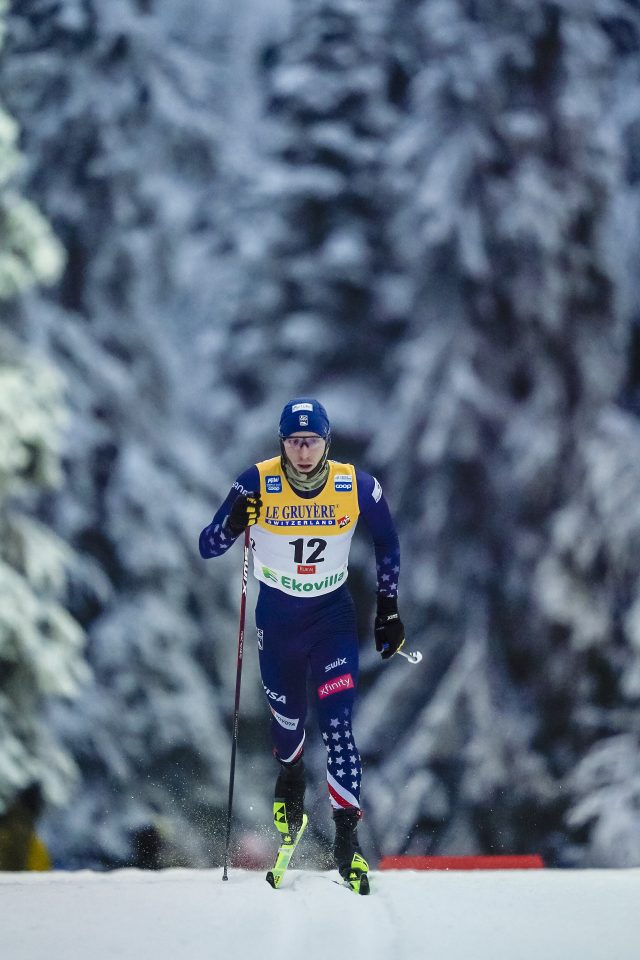
The Race:
The steep climbs of Ruka proved challenging for the men who consistently jumped out of the tracks early on climbs, preferring to run up the loose snow on the sides of the course. Prior to the race there had been much discussion about Klæbo’s health. Questions continued to swirl when he hit the one-kilometer split in 21st place and still trailed at the 3.1- kilometer split.
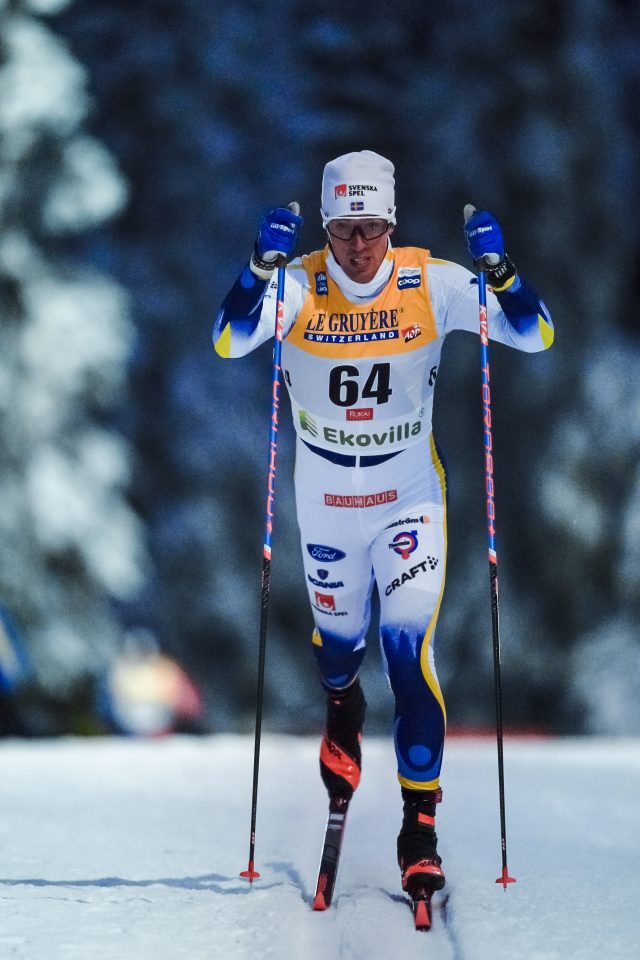
Calle Halfvarsson of Sweden gave many of the Swedish fans in the crowd a thrill as he led the race at the first three splits. Ogden was in the hunt at the one-kilometer mark, only 12.5 seconds out of the lead, but by the 3.1 checkpoint, his trailing margin had widened to 22.4 seconds.
Starting at about the six-kilometer mark, Klæbo removed any doubt about his nagging injury when he jumped into the lead establishing a six second advantage over countryman Halfvarsson. Meanwhile, Musgrave had pulled himself from 23rd to sixth place, only seven seconds away from a podium spot. Musgrave turned in the fastest time from the 3.1 to 5.0-kilometer split.
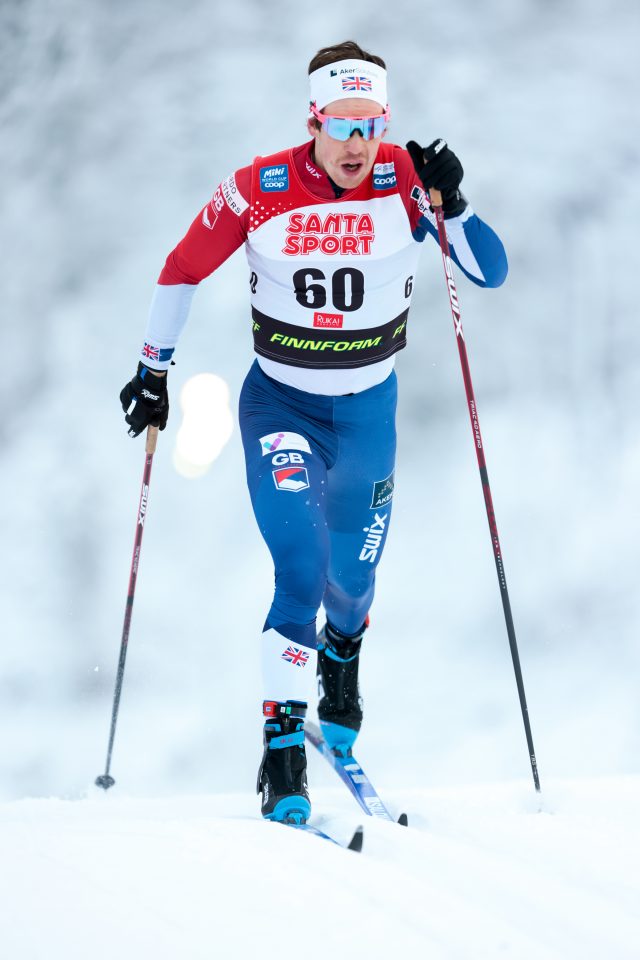
Andrew Musgrave (GBR) – FIS world cup cross-country, having an outstanding weekend in Ruka. (Photo Credit: NordicFocus)
However, because of the start order, Klæbo was never really able to relax since he had started the race ahead of Golberg. When Klæbo finished he had a 28 second lead over the next best finisher. But most of the contenders were still on course, so he was uncertain as to where he would finish. However, the writing was on the wall as Golberg entered the stadium and it became apparent that he wouldn’t be able to catch Klæbo.
The only remaining question was would Norway capture all of the podium positions? The question was only partially answered when Halfvarsson crossed the eight-kilometer checkpoint in fourth but was only 0.2 seconds behind Nyenget. At the finish it appeared that Halfvarsson was struggling mightily but was able to hang on for a fourth place finish. The results; Norway 1-2-3.
